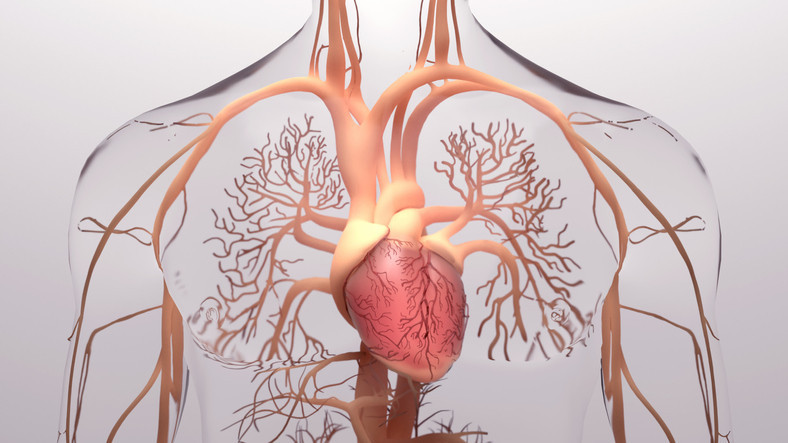
New thinking about plaque in arteries that feed the brain

Want to prevent shifting teeth? Maybe you need retainers

What you need to know about the new dietary guidelines

Food that’s healthier for people and planet can be cheaper, too

New evidence that polyphenol-rich foods help the heart

8 simple ways to reduce ultra-processed foods in your diet

How to curb your stress eating

How to spot Parkinson’s disease symptoms

Heart failure symptoms in women: How they’re different

GERD diet: Foods to avoid to reduce acid reflux
Diabetes Archive
Articles
Heart health guidelines get updated
The American Heart Association recently revised its checklist for achieving optimal heart health. Adequate sleep was added, and updates were made to previous recommendations for diet, cholesterol and blood sugar measurements, and nicotine exposure.
Light during sleep linked to conditions that harm the heart
Older adults exposed to light while sleeping at night may be more likely to have obesity, high blood pressure, and diabetes compared with adults who sleep in darkness.
Hybrid exercise training
Hybrid exercise training combines heart-pumping aerobic action with muscle-strengthening moves in the same exercise session. The strategy has the advantage of meeting two key goals of the federal Physical Activity Guidelines in one fell swoop. And it also appears to be one of the best—and most time-efficient—ways for people who are overweight to lower their risk of cardiovascular-related risk factors. Strong muscles boost a person's basal metabolic rate—the amount of energy the body needs to keep working during rest. That improves weight-loss efforts by ramping up the number of calories burned.
How good is your cardiometabolic health — and what is that, anyway?
An analysis shows less than 7% of adults in the US meet the criteria for optimal cardiometabolic health. Taking small steps to help control and improve key risk factors can reduce the odds of a heart attack or stroke.
A new drug to treat heart failure
Most people with heart failure (or those at high risk for it) need several medications to treat their symptoms. New guidelines from the American College of Cardiology/American Heart Association have added another drug class to the treatment list: a group of diabetes drugs called sodium-glucose cotransporter-2 (SGLT-2) inhibitors. SGLT-2 inhibitors offer multiple benefits, such as helping to reduce swelling, lowering high blood pressure, assisting with weight loss, reducing complications associated with heart failure, and preventing hospitalization.
Is sugar unhealthy?
Sugar is a carbohydrate that provides the body with energy and has an important role in nutrition. It is found in many healthy whole foods, but it is also abundant in unhealthy processed foods. The problem many people have with sugar is that they consume too much of the refined kind added to many processed food products, and not enough of the natural kind in fruits, vegetables, and grains.
What's driving heart attacks in younger adults?
Seven factors appear to account for most first heart attacks in people ages 55 and younger: diabetes, depression, high blood pressure, current smoking, family history of early heart attack, low household income, and high cholesterol.
Diabetes risk increases after COVID-19 diagnosis
A 2022 study found that people who recover from COVID-19 face significantly higher risks of developing type 2 diabetes than those who had short-term upper respiratory tract infections, which are often caused by other viruses.
Use strength training to help ward off chronic disease
Strength training triggers many body reactions that protect people against chronic disease. For example, strengthening muscles helps reduce blood sugar, lower blood pressure, burn calories, and discourage chronic inflammation. Evidence suggests that getting 30 to 60 minutes of weekly strength training leads to the highest amount of health benefits. That's in line with the recommendation from the 2018 Physical Activity Guidelines for Americans. But doctors say any amount of strength training can help health.
Should I add cocoa powder to my diet?
Unsweetened cocoa powder has variable amounts of health-promoting flavanols, depending on how it is processed. Fruits and vegetables are better sources of these compounds, which may improve blood pressure and blood sugar.

New thinking about plaque in arteries that feed the brain

Want to prevent shifting teeth? Maybe you need retainers

What you need to know about the new dietary guidelines

Food that’s healthier for people and planet can be cheaper, too

New evidence that polyphenol-rich foods help the heart

8 simple ways to reduce ultra-processed foods in your diet

How to curb your stress eating

How to spot Parkinson’s disease symptoms

Heart failure symptoms in women: How they’re different

GERD diet: Foods to avoid to reduce acid reflux
Free Healthbeat Signup
Get the latest in health news delivered to your inbox!
Sign Up











